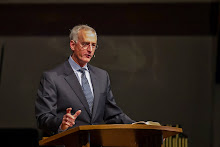When I think of orthodox Christianity, I think of those historic doctrines of the Christian faith for which our predecessors were willing to die. By God’s grace, I trust that if the time ever came, I would be willing to do the same for preaching these glorious truths of the Gospel: the Scriptures are the inspired words of God; God exists in three Persons, Father, Son and Holy Spirit; Christ was miraculously conceived by the Holy Spirit and born to the virgin Mary; Christ died, was buried and rose again for our justification; the only way to be reconciled to God is by grace through faith in the Person and work of Jesus Christ; Christ ascended to heaven and will return to earth one day.
The historic creeds of the Christian faith such as the Apostle’s Creed and the Nicene Creed state these doctrines without ambiguity.
The statements of faith of many churches raise the level of some non-foundational theological positions to equality with the doctrines mentioned above. Many wise and godly men and women throughout the history of the church have held differing positions on those issues. It is imperative that we communicate that which we believe to be essential and critical to our faith. If one is not willing to take the sword for a position, why do we imply that it is such a critical issue?
The church should be committed to the spirit of the this statement: In essentials, unity; in non-essentials, liberty; in all things, charity. Our early church fathers understood the difference between the essentials and the non-essentials.

1 comment:
Thanks for your insight into this area. In my estimation this will continue to be an area of ongoing debate. Just where do you draw a line and how does that line impact how you function. Al Mohler has helped me understand this issue with his discussion on a "Theological Triage." In this he prioritizes theological principles based on their level of importance, much like an Emergency Department prioritizes patients based on the severity of injury or illness. Level 1 is reserved for those issues that define Christian Orthodoxy. Level two are for the principles that define denominations. Finally, level three is reserved for those subjects that could be disagreed upon, but should have no bearing on affiliation and fellowship. You can read his entire commentary on this subject in his blog on Tuesday,July 12,2005 at www.albertmohler.com.
Grace and Peace,
Dan
Post a Comment